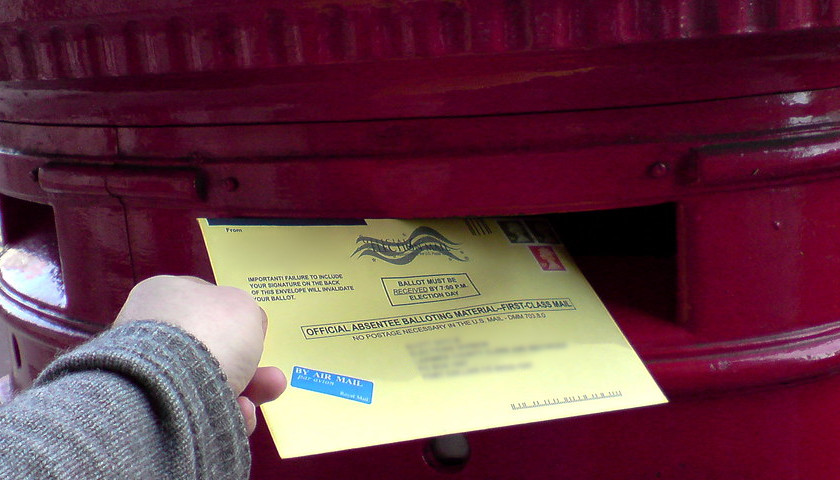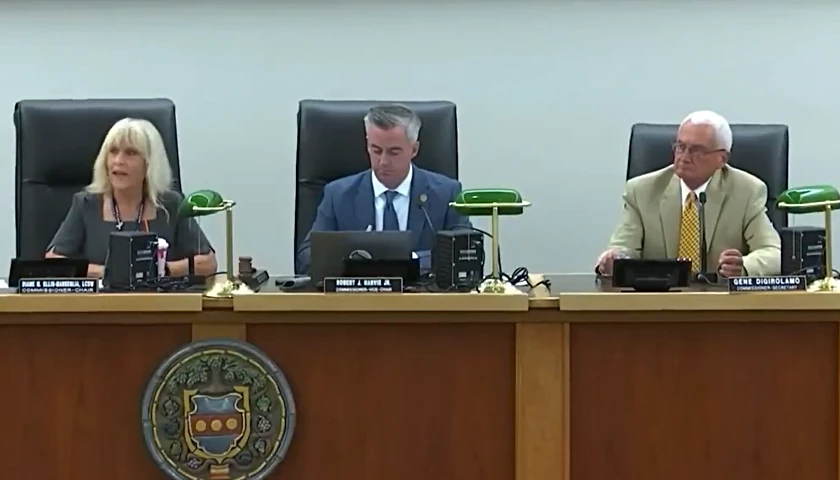by Willis Krumholz
Ramsey County District Judge Sara Grewing has single-handedly overturned Minnesota election law by ruling on Aug. 3 that Minnesota’s absentee ballots no longer require the signature of a witness who is a registered voter or a notary public.
The judge also ruled that absentee ballots can be accepted after the election, as long as they are postmarked as of Election Day. Under the Minnesota law that the judge scrapped, absentee ballots had to be in by 8 p.m. on the night of the election.
The net result is that in all but name, Minnesota’s absentee voting system has been turned into a de facto mail-in balloting system.
CNN crowed that “there is no evidence that mail-in voting leads to fraud. While rare instances of voter fraud from mail-in ballots do occur, it is nowhere near a widespread problem in the U.S. election system.”
Absentee voting and fraud
In reality, Minnesota’s absentee balloting system — even as it stands under the law the judge tossed aside — is prone to abuses. That’s because receiving an absentee ballot is easy if a person is a registered voter, and there is strong evidence that Minnesota’s registered voter list includes up to 26,000 voters who are in fact not eligible to vote — due to issues including lack of citizenship or felony status.
It is notable that despite a finding from the Office of the Legislative Auditor (OLA) that ineligible voters were registered, Democratic Secretary of State Steve Simon has refused to allow outside groups to further analyze the registered voter roll.
Still more concerns exist when it comes to counting absentee ballots. For example, in the election between former Sens. Al Franken and Norm Coleman, Franken won by a margin of about 300 votes, while analysis conducted after the election has found that over 1,000 ineligible felons cast votes in the election. There was also controversy surrounding thousands of absentee ballots that were alleged to be either wrongly accepted or rejected by ballot boards.
In a separate suit, a conservative group is challenging Minnesota cities and counties for ignoring a law that requires both Republicans and Democrats to sit on the boards that accept or reject absentee ballots.
Judge Grewing’s de facto mail-in voting
Because of these existing concerns about absentee ballots, Republican and conservative groups are incensed by Grewing’s decision, and an appeal is highly likely.
It’s worth noting, however, how this decision came about. Back in early May, House Democrats sponsored a bill that spent millions of federal dollars Minnesota received in a grant from Congress, to both bolster voting during the pandemic and enhance election security. The Minnesota House Democrats’ bill was, in the words of a conservative activist, “a blank check for [Democratic Secretary of State] Simon.”
Specifically, the bill included provisions to set up new polling places, and millions was given to Simon for “improving accessibility” without any mention of election security.
In the end, only a handful of GOP House members opposed the bill, as did only one GOP senator. Not only did the vast majority of House and Senate Republicans support the bill, its chief Republican proponents — Rep. Jim Nash, R-Waconia, and Sen. Mary Kiffmeyer, R-Big Lake — touted the bill as a win because it stopped “mail-in voting.”
Days later in May, just after the bill was passed that supposedly stopped mail-in balloting, a DNC-tied coastal law firm, Perkins Coie, backed by big money in a string of similar suits across the nation, filed suit to strike down Minnesota election law by ending the requirement that absentee ballots had to arrive by election day, and by ditching the requirement of a witness’s signature. This happens to be the only difference between absentee voting and mail-in ballots.
To top it off, Perkins Coie’s lawyer on the case is Marc Elias. Elias worked closely with the Clinton campaign in 2016, and hired the opposition-research firm Fusion GPS that started the Russia-gate smear.
Simon moved in June to ditch the signature requirement for the August primary, ostensibly as a precursor to removing the requirement for the November election. Meanwhile, the suits on allowing ballots to come in after Election Day, and a separate suit that would allow third-party ballot harvesting, were brewing in the courts.
Judge Grewing’s Aug. 3 ruling makes that the outcome, absent an appeal, and Simon has happily agreed with the ruling. In other words, the GOP politicians in St. Paul said they stopped mail-in voting. So far, the opposite has happened.
– – –
Photo “Absentee Ballot Drop Off” by Jeff Knezovich. CC BY-SA 2.0.




